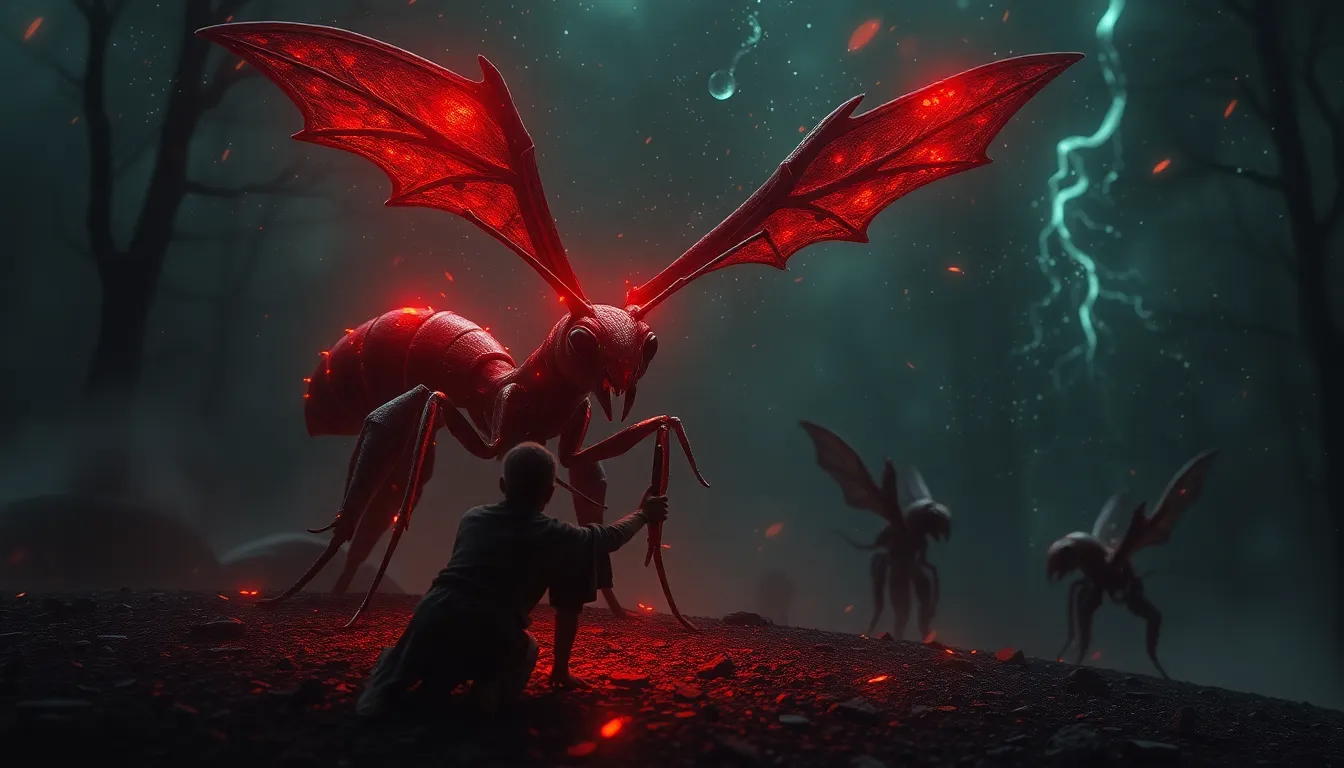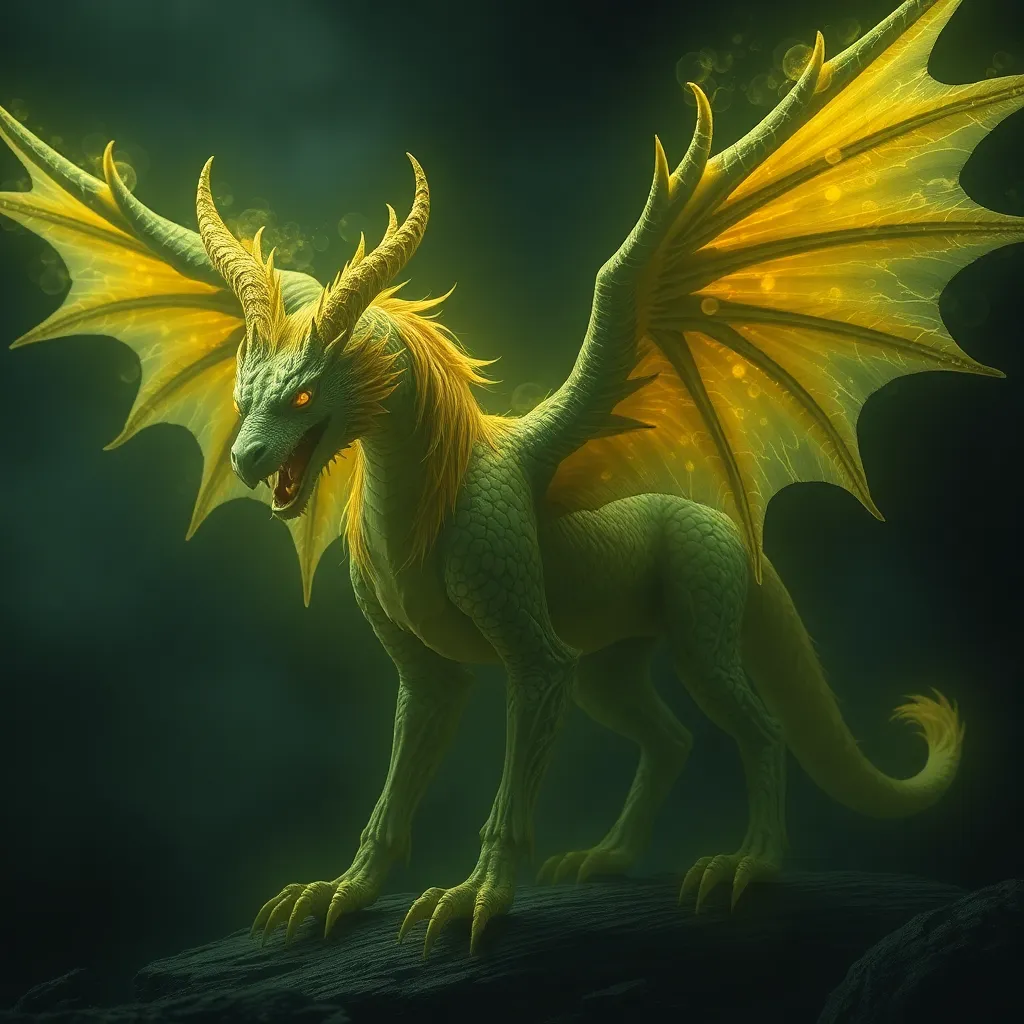The Sacred Ant: Community and Strength in Folklore
I. Introduction
Folklore plays a vital role in the tapestry of cultural narratives, serving as a vessel for the values, beliefs, and traditions of a community. It encompasses tales, myths, and practices that are passed down through generations, often reflecting the society’s understanding of the world around them.
Among the myriad symbols found in folklore, the ant stands out as a powerful emblem of community and strength. Across various cultures, ants are often depicted not only as industrious creatures but also as archetypes of collaboration and resilience. This article aims to explore the multifaceted themes of community and strength represented by ants in folklore, illustrating how these tiny insects embody significant cultural lessons.
II. The Ant as a Symbol of Community
A. The social structure of ant colonies
Ant colonies exhibit a remarkable social structure that reflects the essence of community. Each ant has a specific role that contributes to the overall success of the colony:
- Queen: The reproductive leader of the colony, responsible for laying eggs.
- Workers: The females that gather food, care for the queen’s offspring, and maintain the nest.
- Soldiers: The defenders of the colony, tasked with protecting the nest from intruders.
This organization highlights the importance of cooperation and collective effort, as each member plays a crucial role in the survival of the colony.
B. Folkloric representations of ants as community builders
In various folklore, ants are celebrated for their ability to work together, serving as a reminder of the strength found in unity. Many stories emphasize teamwork and collaboration:
- In some cultures, tales illustrate how ants band together to overcome obstacles, showcasing their problem-solving skills.
- Creation myths in various traditions often depict ants as builders of the earth, reflecting their role in community development.
III. Strength in Numbers: Ants in Folklore
A. The concept of collective strength in ant folklore
Ants epitomize the idea that strength lies in numbers, a theme prevalent in many fables. Their ability to achieve remarkable feats through unity is a recurring motif:
- Stories often highlight how a group of ants can move objects many times their size, illustrating the power of collective action.
- Comparatively, other animal symbols of strength, such as lions and bears, are often portrayed as solitary figures, contrasting with the communal nature of ants.
B. Notable fables featuring ants
One of the most famous fables featuring ants is Aesop’s “The Ant and the Grasshopper.” In this tale, the industrious ant prepares for winter while the carefree grasshopper does not, ultimately facing the consequences of his inaction. This story emphasizes:
- The virtues of hard work and preparation.
- The importance of community support during hard times.
Other cultural tales also highlight the industriousness of ants, reinforcing their role as symbols of diligence and community-oriented strength.
IV. Cultural Variations: Ants in Global Folklore
A. African folklore and the role of ants
In African folklore, ants often appear in proverbs and stories that convey lessons of resilience and tenacity:
- Ants are seen as symbols of persistence, often associated with the idea that “little by little, the bird builds its nest.”
- Many tales depict ants as wise beings that teach humans about hard work and the importance of community cooperation.
B. Indigenous tales of ants in North American folklore
In Native American myths, ants hold significant cultural importance:
- They are often seen as helpers or guides, imparting wisdom about survival and the interconnectedness of life.
- Stories of ants emphasize cooperation and the necessity of working together for the greater good.
C. Asian perspectives on ants in folklore
In Asia, ants are similarly revered, particularly in Chinese and Japanese folklore:
- Chinese tales frequently associate ants with hard work, portraying them as diligent creatures that inspire human effort.
- Japanese stories often highlight the wisdom of ants, illustrating how their behavior can teach valuable life lessons.
V. Ants as Lessons in Environmental Sustainability
A. Folklore teaching respect for nature through the ant’s role
Ant folklore often carries messages that promote respect for nature. The ant’s role as a tireless worker serves as an example of how all creatures contribute to the ecosystem:
- Stories encourage humans to recognize the importance of preserving nature and working harmoniously with it.
B. Modern interpretations of ant stories in the context of environmentalism
In contemporary discussions about environmental sustainability, ant stories have been reinterpreted to highlight ecological challenges:
- These tales inspire action towards protecting the environment, emphasizing the collective responsibility we share.
C. Connecting folklore to contemporary ecological challenges
By drawing parallels between traditional ant narratives and modern ecological issues, we can foster a deeper understanding of our role in the environment.
VI. The Ant in Modern Literature and Pop Culture
A. The resurgence of ant symbolism in literature
In recent years, the symbolism of ants has resurged in literature, reflecting societal values of cooperation and hard work.
B. Ants in film and animation: From “Ant-Man” to “A Bug’s Life”
Films such as “Ant-Man” and “A Bug’s Life” have brought the ant’s narrative to mainstream audiences, showcasing their strength and community spirit:
- These stories emphasize themes of teamwork and the triumph of the underdog.
C. The transformation of ant folklore into modern narratives
The adaptation of ant folklore into modern narratives allows for the preservation of traditional values while also addressing contemporary issues.
VII. The Psychological Impact of Ant Symbolism
A. Collective consciousness and the ant metaphor
The symbolism of ants resonates deeply within the collective consciousness of society:
- They serve as a metaphor for the strength found in unity, illustrating how individuals coming together can achieve remarkable feats.
As we reflect on the role of ants in folklore, we recognize their enduring legacy as symbols of community, strength, and the importance of working together for a common purpose.



